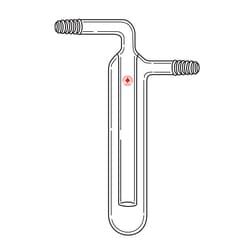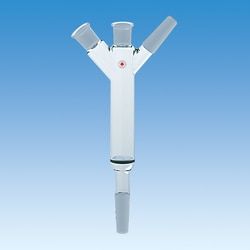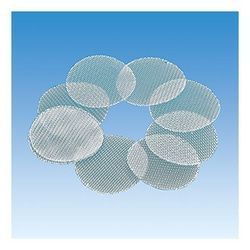50-255-0882
Ubiquitin Monoclonal Antibody (eBioP4D1 (P4D1)), eBioscience™, Invitrogen™
Manufacturer: LIFE TECHNOLOGIES
Select a Size
| Pack Size | SKU | Availability | Price |
|---|---|---|---|
| Each | 50-255-0882-Each | In Stock | ₹ 1,04,276.85 |
50-255-0882 - Each
In Stock
Quantity
1
Base Price: ₹ 1,04,276.85
GST (18%): ₹ 18,769.833
Total Price: ₹ 1,23,046.683
Related Products
Description
- Description: The monoclonal antibody eBioP4D1 (p4D1) recognizes ubiquitin, a small 8Ka protein
- Ubiquitin units are linked to proteins via a ubiquitination process, thereby signaling the protein for degradation by the 26S proteosome
- The process of ubiquitination plays a role in differentiation, cell cycle progression, apoptosis and disease progression
- For example, neuronal inclusions called Lewis bodies from Parkinson patients are rich in ubiquitin
- Applications Reported: This eBioP4D1 (P4D1) antibody has been reported for use in immunoprecipitation, immunoblotting (WB), and immunohistochemical staining
- Applications Tested: This eBioP4D1 (P4D1) antibody has been tested by immunblotting of treated cell lines
- This can be used at less than or equal to 2 μg/mL
- It is recommended that the antibody be carefully titrated for optimal performance in the assay of interest
- Purity: Greater than 90%, as determined by SDS-PAGE
- Aggregation: Less than 10%, as determined by HPLC
- Filtration: 0.2 μm post-manufacturing filtered
- Ubiquitin, a highly conserved protein that has a major role in targeting cellular proteins for degradation by the 26S proteosome, is synthesized as a precursor protein consisting of either polyubiquitin chains or a single ubiquitin fused to an unrelated protein
- This gene encodes a fusion protein consisting of ubiquitin at the N terminus and ribosomal protein S27a at the C terminus
- When expressed in yeast, the protein is post-translationally processed, generating free ubiquitin monomer and ribosomal protein S27a
- Ribosomal protein S27a is a component of the 40S subunit of the ribosome and belongs to the S27AE family of ribosomal proteins
- It contains C4-type zinc finger domains and is located in the cytoplasm
- Pseudogenes derived from this gene are present in the genome
- As with ribosomal protein S27a, ribosomal protein L40 is also synthesized as a fusion protein with ubiquitin; similarly, ribosomal protein S30 is synthesized as a fusion protein with the ubiquitin-like protein fubi
- Multiple alternatively spliced transcript variants that encode the same proteins have been identified.




